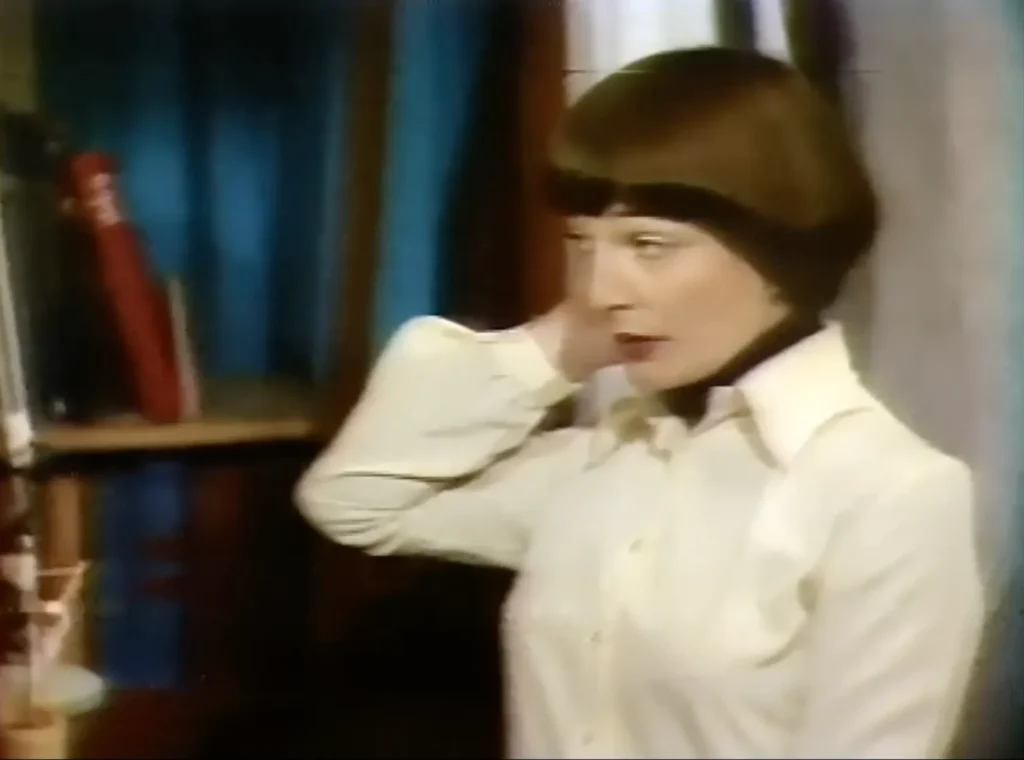Ooh! You are strong doctor?
- DOCTORS & PATIENTS IN COLOUR - OOOH! YOU ARE A STRONG DOCTOR?
We start this consultation from the very start. A young woman arrived at the practice to see a new doctor, expressing her concern about frequent headaches. However, the conversation swiftly transitioned to the young doctor’s choice of car and potential address.
First, we see the female patient enter the room, take her coat off, and put it on the chair, making herself at home. The doctor asks how he can help. “What can I do for you?” The patient replies, saying she’s been suffering from terrible headaches that start at the top of her head and run to the back of her head onto her neck, causing her great distress. “It’s really not very nice!” she explains and asks the doctor if she can get something for the pain. Simultaneously, the doctor asks if she has been to see them before about it, and we find out she has not. However, she mentioned that the doctor had only recently moved to the practice and hadn’t been at the general practice for very long, so he wouldn’t have been around to see her. The patient then asked how long he had been here, to which he replied that he had been here for four to five months and said, “Time flies.” This usual chit-chat does not last long before the patient asks inappropriate questions towards the doctor.
The patient asks the doctor if he lives in the area, which is something a patient should not be asking their doctor. Personal questions to the doctor are inappropriate and should never be asked. The doctor maintains his professionalism and answers yes but says, “Just outside of town.” to clearly indicate that he is not comfortable with this line of questioning. The doctor then tries to steer the conversation back to clinical matters by asking the patient how long she’s had these headaches. We find out that she’s had this headache for about three days and that they come and go.
Perhaps you might live there?
Unfortunately for the doctor, his patient, asks another personal question about his car. The patient wondered if it was “The Blue One.” She had seen it outside the practice before she came in. He once again says yes, but before he can say anything more, the patient mentions she saw it recently parked outside. “A rather nice house, in Hatch Lane?” and asks if that is correct. At this point, the patient is coming over in a rather stalker-ish way, like she’s trying to get hold of his address. He mentions they have some patients up there, so it is possible. “Oh, I thought perhaps you might live there.” In shock and surprise, the doctor made it relatively clear that he did not.

Rather quickly, the doctor moves the conversation on and steers it back to clinical matters again by asking his patient what brings on these headaches. But that is only short-lived before his patient is off discussing skiing and the perks of the apres-ski scene. The patient’s persistent non-professional behaviour starts to make the doctor feel uncomfortable. At this point, the doctor could have stopped the consultation and addressed the patient’s misbehaviour towards him. Alternatively, the doctor could have terminated the consultation because he felt uneasy. It is not right to ask your doctor personal questions, as you are there as a patient at the time only.
Dangerous No!
Unsurprisingly, we see this when the patient tries to show off to the doctor by mentioning that her headaches’ causes could have been down to when she was recently skiing: “We’ve just come back from Serbia”, and goes on to ask if the doctor has been there. Unsurprisingly, she asks if the doctor has been skiing, to which he responds, “Dangerous No” he doesn’t like it at all. “Seen too many broken bones.” The patient ignores this response and flaunts how much fun it is, then mentions that Après skiing is even more fun. The doctor replies enthusiastically, “Well, you injured yourself? Did you?” trying to show he was correct to worry about how dangerous it was. The patient thinks the skiing might have brought it on initially, but she’s unsure. The doctor replies, “Well, I said it was dangerous.” The conversation moves on once more.
Once again, the patient inquires inappropriately about about his squash playing, and she emphasises her curiosity in various ‘fast games.’ She asks, “Do you play squash?” The doctor replied yes and mentioned that she obviously does it herself, as she mentioned it to him. The patient tells him it “keeps the old body in trim.” The doctor agrees before the image is gone.
This instructional tape delves into the intricacies of the challenges faced by medical professionals in establishing and maintaining a professional relationship with patients who may seek non-professional encounters. The content explores the ethical, emotional, and practical considerations involved in handling such situations, considering the potential impact on patient care, trust, and the overall dynamics of the doctor-patient relationship. Maintaining a professional doctor-patient relationship is crucial, as this is the foundation of effective healthcare.
